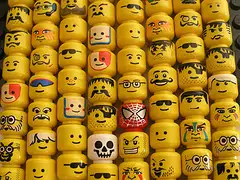Open Source Life?
As Japan is losing interest in the personal computer, Google announces recently the Android alliance to bring free and open source software to mobile phones. The revolutionary part of this is that proprietary software might be mostly for the personal computer; it will not longer be anymore for the mobile.  This opens complete different opportunities because free and open source software unleash creativity and the mobile phone is in many countries the number one tool. One of the main communication devices is now open to all kinds of ideas.
But open source is not only about software. It is a movement or philosophy where the software is just one part of it. Approaches such as Creative Commons propagate the use for open license of texts, music, films and many other things. All that shows a shift in thinking of copyright. However, it can also significantly change our work and life.
This opens complete different opportunities because free and open source software unleash creativity and the mobile phone is in many countries the number one tool. One of the main communication devices is now open to all kinds of ideas.
But open source is not only about software. It is a movement or philosophy where the software is just one part of it. Approaches such as Creative Commons propagate the use for open license of texts, music, films and many other things. All that shows a shift in thinking of copyright. However, it can also significantly change our work and life.
One approach is to facilitate international development through free and open source. Vinay Gupta argues for open source in technologies such as those for the household.
An open library of designs for refrigerators, lighting, heating, cooling, motors, and other systems will encourage manufacturers, particularly in the developing world, to leapfrog directly to the most sustainable technologies, which are much cheaper in the long run. Manufacturers will be encouraged to use the efficient designs because they are free, while inefficient designs still have to be paid for. This library should be free of all intellectual property restrictions and open for use by any manufacturer, in any nation, without charge.
It basically means that people can jointly create tools or machines and develop them collaboratively further on a peer-to-peer base. That leads to projects such as an open source car or an open source machine. Web2.0 with its many new opportunities for participation, can bring the open source approach to another level. Nowadays, it is social media, but hopefully soon it will be collaboration on a massive scale to find pragmatic low cost solutions for communities. That could happen by conceptualizing with a network of expertise from different actors, by exchanging experiences learning from each other worldwide. Check out the blog from the peer2peer foundation for more insights. The blogger Michel Bauwens collects also excellent links in delicious.
Frithjof Bergmann, (German Blog) a German philosopher, goes in his theory of New Work--New Culture in a similar direction. He propagates that open exchange should become part of our lives. His theory is provocative and has some open source elements in it. Broadly said, he argues that nowadays economy cannot offer enough work for everybody. Secondly, he argues that people often do not work what they really really want to do and questions where does their talent lies. His solution is that people shall divide their work in three thirds. One third to work to have an income, another third to do what they are good at where they can unleash their creativity, and lastly, one third to build and construct all the things and services one cannot earn with the less income. Whether it is realistic or not is another question, even though he has proved around the world in different places such as prisons or Flint in the USA. Here is a paper from Frithjof Bergmann.
What I find interesting about these arguments and developments is that it is possible to have a paradigm shift in the future. It is not only companies and organizations, how the Wikinomics authors argue in their book. It is a culture shift through a new dimension of communication and collaboration. Open source is the fuel for this movement. A peer-to-peer decentralized network to find solutions for everyday problems, develop new forms of low-tech production and own distribution channels by working together in networks in an open source spirit.